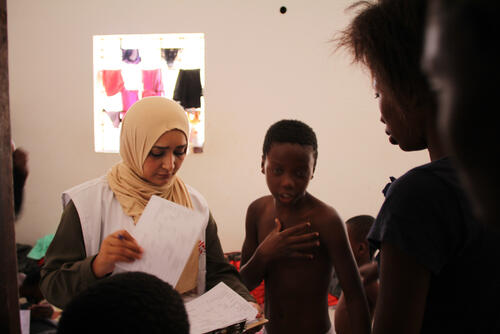In Zuwara, we provide basic healthcare, sexual and reproductive care, tuberculosis diagnosis and treatment, and mental health support. We also assist migrants intercepted at sea at disembarkation points. In Misrata, we support the provision of medical assistance to tuberculosis patients. In Tripoli, we provide protection and emergency medical services to vulnerable people and run a mobile clinic in a detention centre once a week.
Our activities in 2023 in Libya
Data and information from the International Activity Report 2023.
219
219
€13.2 M
13.2M
2011
2011
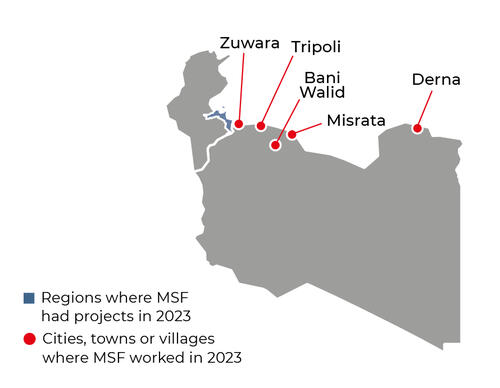

51,900
51,9
6,210
6,21
130
13
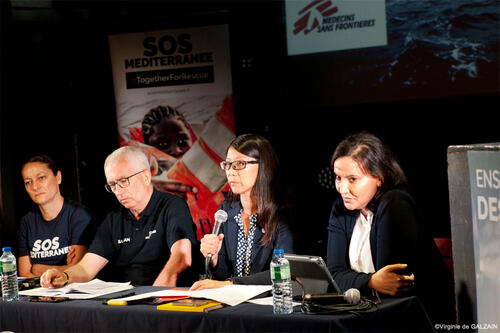
MSF resumes search and rescue operations with Ocean Viking
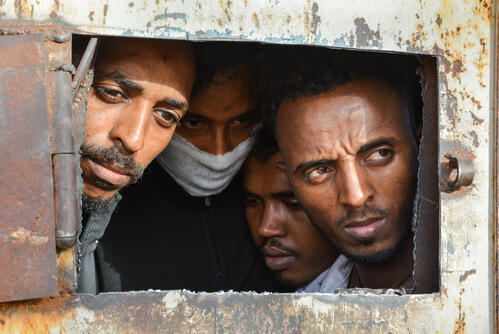
Out of sight, out of mind: refugees in Libya's detention centres
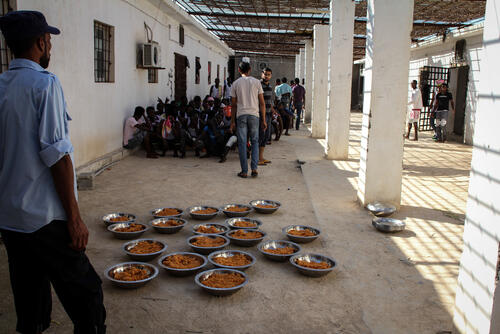
“Healthwise, it was a disaster” in Libya’s Zintan and Gharyan detention centres
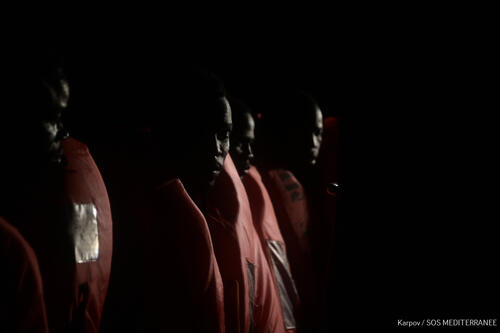
European policies continue to claim lives on the Mediterranean Sea
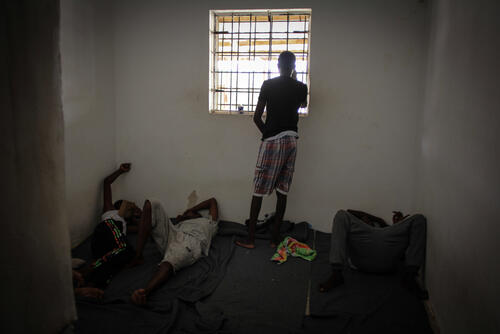
More than medicine: A look at mental health needs in detention
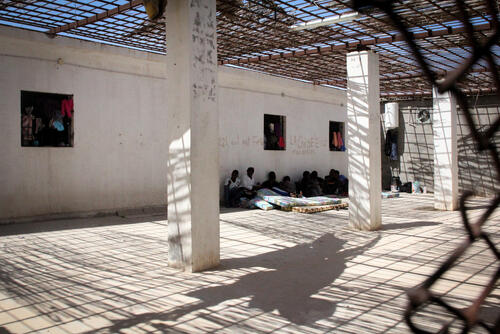
Time running out for evacuations of trapped refugees in Tripoli amid shooting
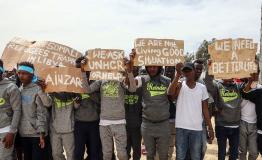
Detained refugees trapped, Libyan families flee, as fighting worsens in Tripoli
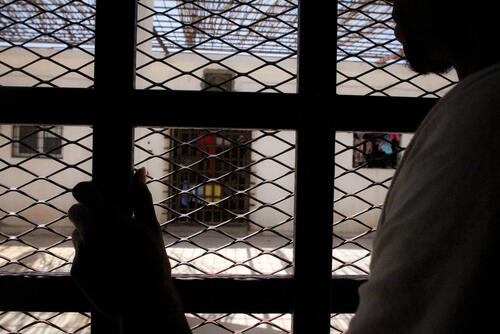
Trapped refugees must be released and granted safety from Tripoli fighting
